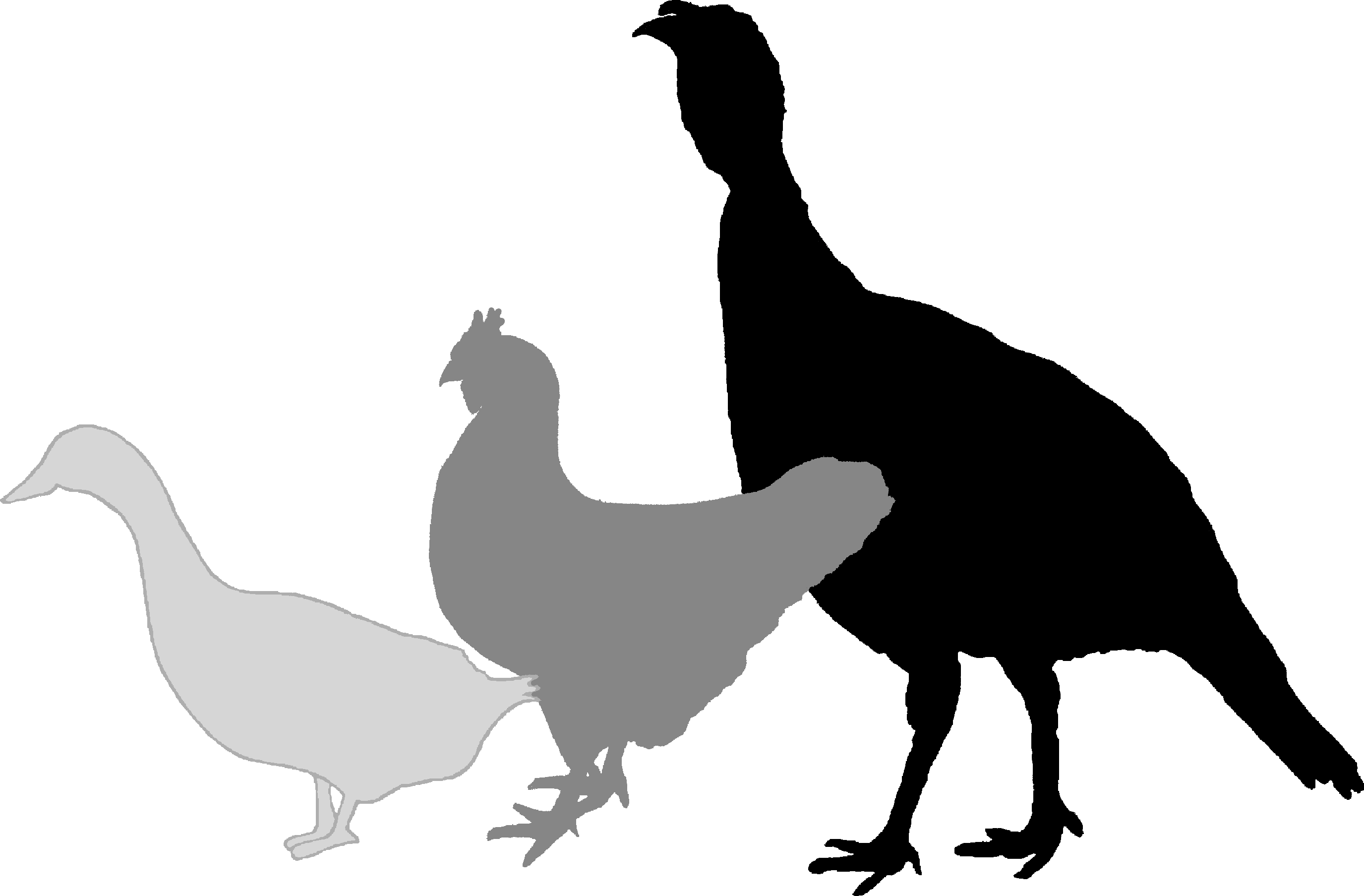About Us
Hello. We arenít poultry experts. We are just some people that like having animals around. Over time our menagerie has grown from a rescued dog and a couple of cats to many more animals. When we wanted to get some birds for eggs for our family, my husband instantly assumed we would get some chickens. I grew up with both ducks and chickens and really loved duck eggs so I pushed for getting some ducks too. Well, the couple of chickens and a few ducks have grown to three varieties of ducks, a half of dozen breeds of chickens, several varieties of heritage breeds of turkeys, and four white Emden geese. You can add that to our dogs, cats, horse, snakes, turtles, tarantula, and fish. When we say menagerie we really mean it.
This is just a family operation. My husband and I and our three sons are all there is. Since we have ďrealĒ jobs this is just a hobby that keeps growing.
Our eggs are not organic. We feed high quality, non-medicated food (Hi-Pro Feeds) and supplement our birds with alfalfa when there isn't anything green growing. We make every attempt to have feed and fresh water available for our birds at all times (I say attempt because the ducks are messy and fresh water doesn't stay fresh for long!). We do not use pesticides for fear that our birds may encounter them. None of our birds are kept in cages.
When my oldest son began to be old enough to ask about his food it began to bother me that all he saw was packages in a grocery store. I had always told him that if he ate meat then an animal died to give him that meat. Once we had the ducks and chickens around for eggs, finding eggs was like an eternal easter egg hunt. When we began to slaughter and process our own birds it really began to sink in that meat came from living animals. I think this adds an appreciation for the animals and the gift that they give us.
We believe that consumers have the right to know exactly where their food comes from and the details about the way in which it was raised. Terms like "free range" and "cage free" do not tell the consumer the whole truth. According to the USDA, eggs can be labeled as free range if they are not in cages and allowed access to sunlight. Keeping chickens in a building on a very crowded floor with a small window to let in sunlight qualifies as free range. Also cage free does not mean that the chickens have any more room than if they were in cages.
When we are home we always try to let the birds loose to run around. We keep our birds in runs covered with nets whenever we aren't home and at night. The fencing prevents most things from getting to the birds. The net prevent ravens from stealing eggs and killing young birds. The chickens are provided with coops to go into at night. The ducks prefer to sleep outside so they are provided with sun shades and wind breaks. The turkeys like to roost on the highest point they can. They actually settle down between the ducks and chickens on a fence. Our set up is slightly hodge podge and we have plans to make improvements. However, we are still willing to let people come visit and see just how we raise our birds.
There is a new grass-roots campaign to let the public know about the nutritional benefits of pastured poultry and the poor quality of eggs from factory farms. Eggs from pasture raised hens contain significantly more vitamin E, folic acid, vitamin B-12, carotene, and omega-3; these eggs also contain less cholesterol.
American agribusiness is producing more food than ever before, but the evidence is building that the vitamins and minerals in that food are declining.
Support family farmers and enjoy food that tastes better and is more nutritious than what you can buy at the supermarket. Buying fresh local food also is the easiest way to avoid eating processed food with added salt, sugar, fat, and preservatives. Locally grown food tastes better because itís fresher and growers can plant better-tasting varieties if their fruits and vegetables wonít need to stand up to long-distance shipping.

